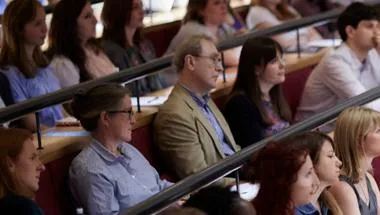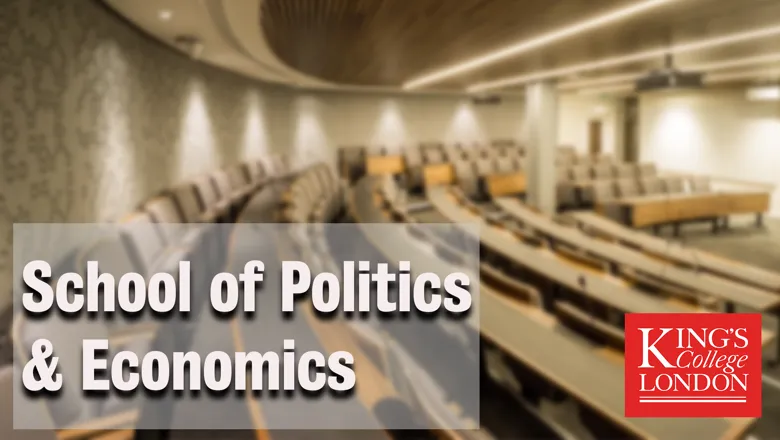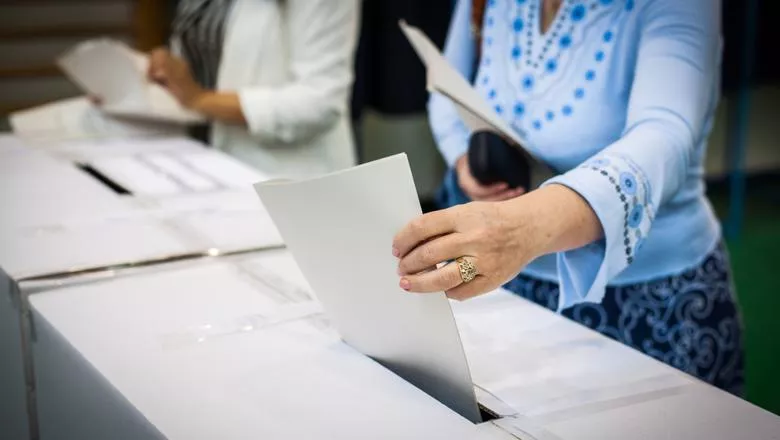
Dr Marco Giani
Senior Lecturer in Political Economy
Research interests
- Politics
Contact details
Biography
Dr Marco Giani joined the Department of Political Economy in 2018. Prior to this, he was a Postdoctoral Fellow in Political Science at the London School of Economics, and a Teaching Fellow in Public Policy at University College of London. His research focuses on the relationship between social cleavages and political values across Europe amid globalisation, using quantitative techniques.
Research
Please see personal website for current projects and publications.
Teaching
- Political Economy of Discrimination
- Statistics for Political Science
Office hours
- Wednesday: 14.30 - 15.30
- Thursday: 11.30 - 12.30
PhD Supervision
Marco is interested in supervising the following topics:
- European politics
- Education and politics
- Political economy
Publications
All latest publications are available on my website, https://www.marcogiani.com
Research

Quantitative Political Economy Research Group
The Quantitative Political Economy research group gathers economists and political scientists that are committed to bridging the two disciplines. The common ground is the study politics and policies with advanced quantitative methods and formal modeling.

Comparative Politics Research Group
The Comparative Politics research group hosts a research agenda based on political institutions, representation and regimes.

Centre for British Democracy
The Centre for British Democracy is interested in the study of government and politics in the United Kingdom from an historical, political science, political theory and constitutional perspective.

Politics, Philosophy and Economics Research Group
The PPE research group studies questions spanning the disciplines of politics, philosophy, and economics.
News
Public's willingness to see freedoms curtailed after attacks 'influenced by media coverage''
The public’s willingness to see their personal freedoms and rights curtailed in the aftermath of a terrorist attack may be influenced more by subsequent media...

Compulsory national service not the solution many think it is, research finds
Reintroducing compulsory national service is unlikely to improve social cohesion or bolster trust in national institutions, according to new research.

Relative education levels 'key driver' of attitudes towards responsibility for childcare
The attitudes of men and women towards responsibility for childcare is shaped more by their relative power within the household than the cost of deviating...

Paper reveals impact of COVID-19 on trust in governments
Trust in governments and democracy in Europe has been bolstered by the Covid-19 pandemic, a new paper has found.

Racist attitudes in Europe 'increased following US election'
The election of Donald Trump to the US presidency saw an increase in racist attitudes across a number of European countries, research by academics has shown.

Research

Quantitative Political Economy Research Group
The Quantitative Political Economy research group gathers economists and political scientists that are committed to bridging the two disciplines. The common ground is the study politics and policies with advanced quantitative methods and formal modeling.

Comparative Politics Research Group
The Comparative Politics research group hosts a research agenda based on political institutions, representation and regimes.

Centre for British Democracy
The Centre for British Democracy is interested in the study of government and politics in the United Kingdom from an historical, political science, political theory and constitutional perspective.

Politics, Philosophy and Economics Research Group
The PPE research group studies questions spanning the disciplines of politics, philosophy, and economics.
News
Public's willingness to see freedoms curtailed after attacks 'influenced by media coverage''
The public’s willingness to see their personal freedoms and rights curtailed in the aftermath of a terrorist attack may be influenced more by subsequent media...

Compulsory national service not the solution many think it is, research finds
Reintroducing compulsory national service is unlikely to improve social cohesion or bolster trust in national institutions, according to new research.

Relative education levels 'key driver' of attitudes towards responsibility for childcare
The attitudes of men and women towards responsibility for childcare is shaped more by their relative power within the household than the cost of deviating...

Paper reveals impact of COVID-19 on trust in governments
Trust in governments and democracy in Europe has been bolstered by the Covid-19 pandemic, a new paper has found.

Racist attitudes in Europe 'increased following US election'
The election of Donald Trump to the US presidency saw an increase in racist attitudes across a number of European countries, research by academics has shown.

